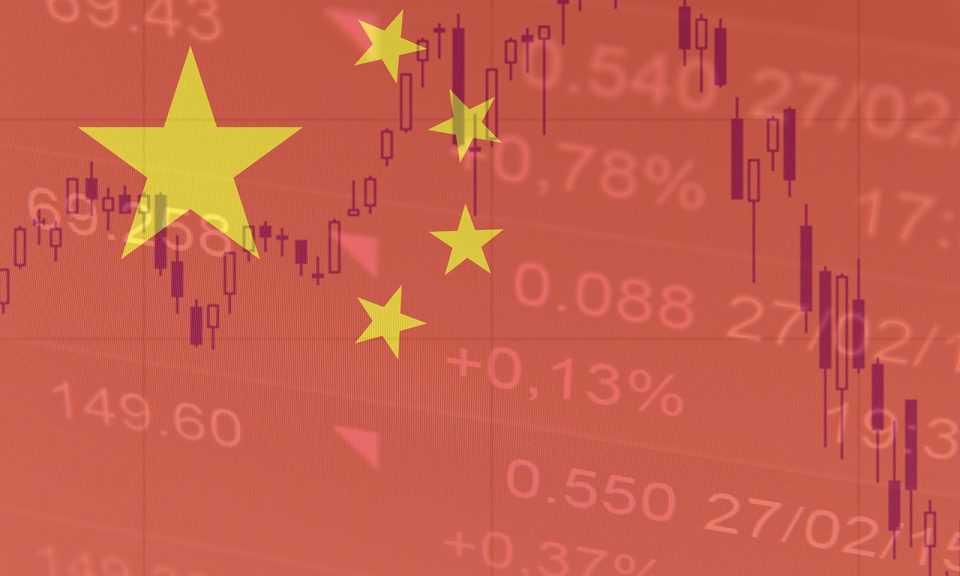China’s Minsky moment beckons
05 August, 2018

A scandal involving faulty vaccines wouldn’t seem a threat to China’s most powerful reform push in decades. Nothing could be further from the truth, though, as President Xi Jinping’s 2018 darkens by the day.
Recent days demonstrated why. China’s president doesn’t tweet or engage in public displays of emotion. Yet stress levels in Beijing are surging as growth slows, a trade war escalates, the yuan slides and Sinologists buzz about waning enthusiasm for upending an imbalanced economic system.
The first two headwinds are well understood. Ten years of trying to avoid the worst of the 2008 global economic crisis are catching up with Beijing. Untold trillions of dollars of credit, debt and central bank stimulus are losing potency, what economists call the “diminishing returns” problem.
US President Donald Trump’s tariffs arms race, meantime, are shoveling sand into the gears driving the world’s biggest trading nation. First levies on steel and aluminum, then 25% taxes on US$34 billion of Chinese goods. Another US$200 billion of tariffs is on the way to as much as US$505 billion of China’s America-bound exports.
The yuan’s accelerating drop over the last six weeks reflects investor doubts that Xi can keep dueling bubbles in credit, debt and property from imploding. This so-called Minsky moment arrives in every giant, industrializing economy and it will someday hit China. The question is whether Trump’s trade assault will deliver that Minsky reckoning.
A recent scandal, where hundreds of thousands of Chinese school children may have been injected with faulty vaccines, scandal ties these challenges together, has sparked a national uproar and raises the stakes considerably for Xi’s legitimacy.
“Xi has staked considerable political capital on rooting out corruption and strengthening control,” writes Minxin Pei, author of “China’s Crony Capitalism,” in a Project Syndicate op-ed.
“The fact that a private company with deep political connections is at the center of the vaccine scandal is painful evidence that Xi’s top-down anti-corruption drive has not been as effective as claimed. An unintended consequence of Xi’s consolidation of power is that he is accountable for the scandal, at least in the eyes of the Chinese public.”
The anti-graft drive is absolutely central to remaking the economy. It’s about forcing vested interests to embrace economic liberalization and an independent private sector. The vaccine narrative fans fears that Xi’s push is less a generalized campaign to cleanse the system than a targeted strategy to silence rivals. It heightens growing concerns that Xi’s economic shock therapy isn’t all it’s cracked up to be.
This year’s 17% plunge in Shanghai stocks is a reminder, for example, that the summer of 2015 never really ended. Two years ago, plunging shares were nothing short of an existential crisis for a leader pledging to give markets a “decisive role.”
Then, Xi’s men threw the full weight of the government at short-sellers: cutting interest rates; buying shares; loosening margin and leverage requirements; suspending initial public offerings; and halting trading. Beijing even made a public appeal: buying shares to stabilize the market is patriotic.
And stabilize it did. But Shanghai’s latest plunge shows that Xi’s team has done more to treat the symptoms of financial maladies than the underlying causes. For all the excitement about Xi outdoing Deng Xiaoping’s reforms, he’s actually slow-walking efforts to wean China Inc off exports, scale back the influence and bloat of politically-connected enterprises, and internationalize corporate practices.
Here’s why the dodgy vaccine controversy is as explosive for Xi’s legitimacy as it is poorly timed. The scandal centers on Changsheng Biotechnology Co, which falsified production data for rabies vaccines.
News that more than 250,000 are in question is making global headlines. That, right after Zhejiang Huahai Pharmaceutical, a manufacturer of cardiovascular disease medicines, had to recall drugs sold in the US and Europe.
On the one hand, the scandal shakes faith in a US$122 billion industry that Xi hopes to champion globally. On the other, it sparked massive, and rare, protests on the mainland. Now, it’s testing overseas confidence in Xi’s leadership, putting a yuan already down 5% this year at further risk.
“The safety scandal over the nation’s vaccines,” say analysts at Fitch Solutions, “reminded investors of the series of food and product recalls from a decade ago that decimated China’s reputation; damage that took years to repair.”
This “reminded investors” that the problem is a bigger one than many realize. China’s reputation as a credible and stable economy has taken years to repair, too. It’s in question once again at a moment when global uncertainties are putting maximum pressure on Xi’s commitment to change.
TAG(s):
